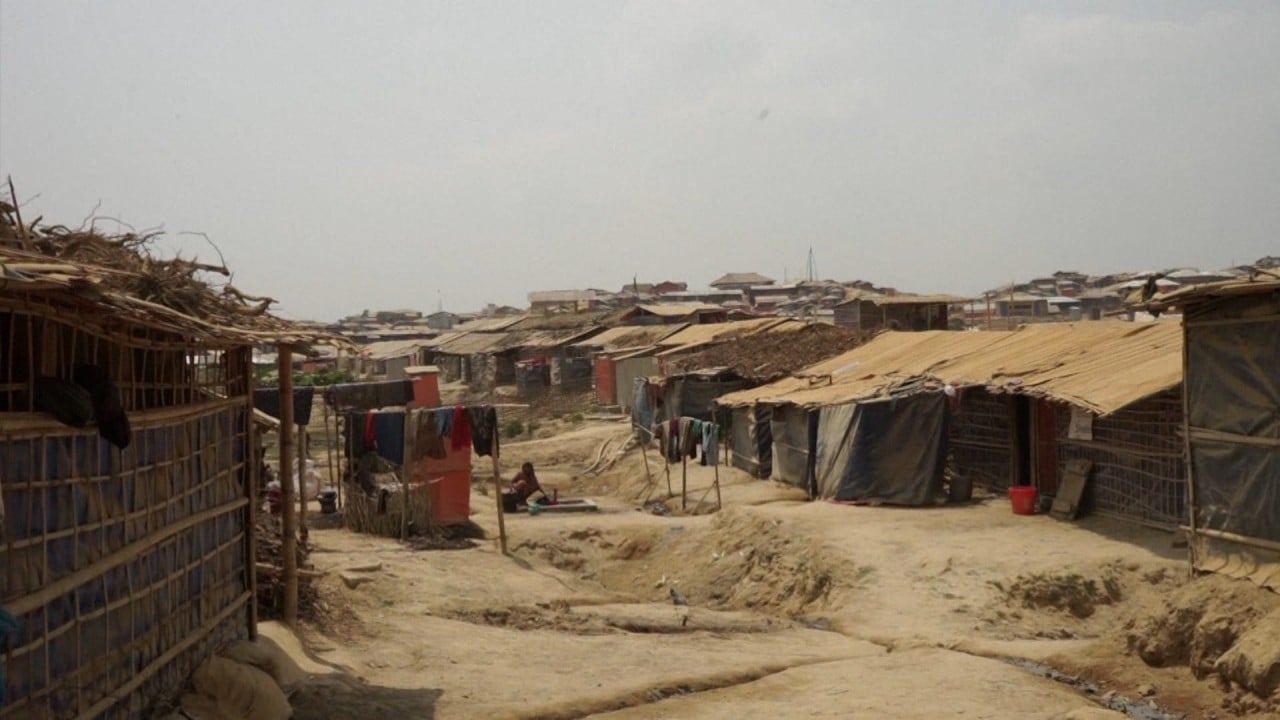
Thousands of Rohingya protest in Bangladesh 6 years after exodus: ‘we want to go home with our full rights’
- Despite the monsoon downpour, 10,000 refugees were at the biggest of the demonstrations that spread across the sprawling settlements near the Myanmar border
- Budget cuts forced the UN to steeply reduce aid to the camps this year – where malnutrition was already rampant – rations are now just US$8 a month per refugee
Bangladesh is home to around a million members of the stateless minority, most of whom fled the 2017 military crackdown now subject to a genocide probe at the International Criminal Court.
Frustration is widespread over rampant lawlessness in the refugee settlements, along with cuts to international humanitarian aid and the lack of progress in a much-hyped repatriation deal.
“We demand citizenship back from Myanmar. It’s nothing new, we were and are the citizens of Myanmar,” Kamal Hussain, a Rohingya community leader, said. “They are slowly trying to wipe out our name from the history of Myanmar.”
Several protests were staged across the sprawling patchwork of settlements near the Myanmar border despite monsoon downpours.
Rohingya risk death, rape at hands of smugglers to escape Myanmar, Bangladesh
Around 10,000 refugees were present at the largest one, according to the Armed Police Battalion, which is tasked with maintaining security in the camps.
“We have insecurity and increasing frustration here,” refugee Mohammad Imran, 19, said. “We want to go back home with our full rights.”
Budget cuts forced the UN World Food Programme to steeply reduce humanitarian aid to the Rohingya camps this year, with rations now US$8 per refugee, per month.
Malnutrition was already rampant among the refugee population, and rights groups say the cuts have deepened existing hardships.
Violence has continued to plague the camps, which are home to armed groups and are used as staging posts for regional drug trafficking networks.

Dozens have been killed in Rohingya camp clashes so far this year, including women and children.
“As humanitarian conditions in the world’s largest refugee settlement worsen … the challenges surrounding this protracted crisis continue to increase,” the UN refugee agency said in a statement this week.
Bangladesh and Myanmar are working on a pilot programme to begin returning the Rohingya to their homes, despite concerns from rights groups who say conditions are not safe for their return.
India must probe arrests of Rohingya Muslims, cease crackdown: rights group
Widely viewed as interlopers from Bangladesh, Rohingya who remain in Myanmar are denied citizenship and access to healthcare, and require permission to travel outside their townships.
Myanmar junta chief Min Aung Hlaing – who was head of the army during the crackdown – has dismissed the term Rohingya as “imaginary”.
Bangladesh has repeatedly said any repatriation would be voluntary.
The pilot scheme has not begun, and Bangladesh refugee commissioner Mizanur Rahman said his country was still working out details with Myanmar authorities.

.png?itok=arIb17P0)
